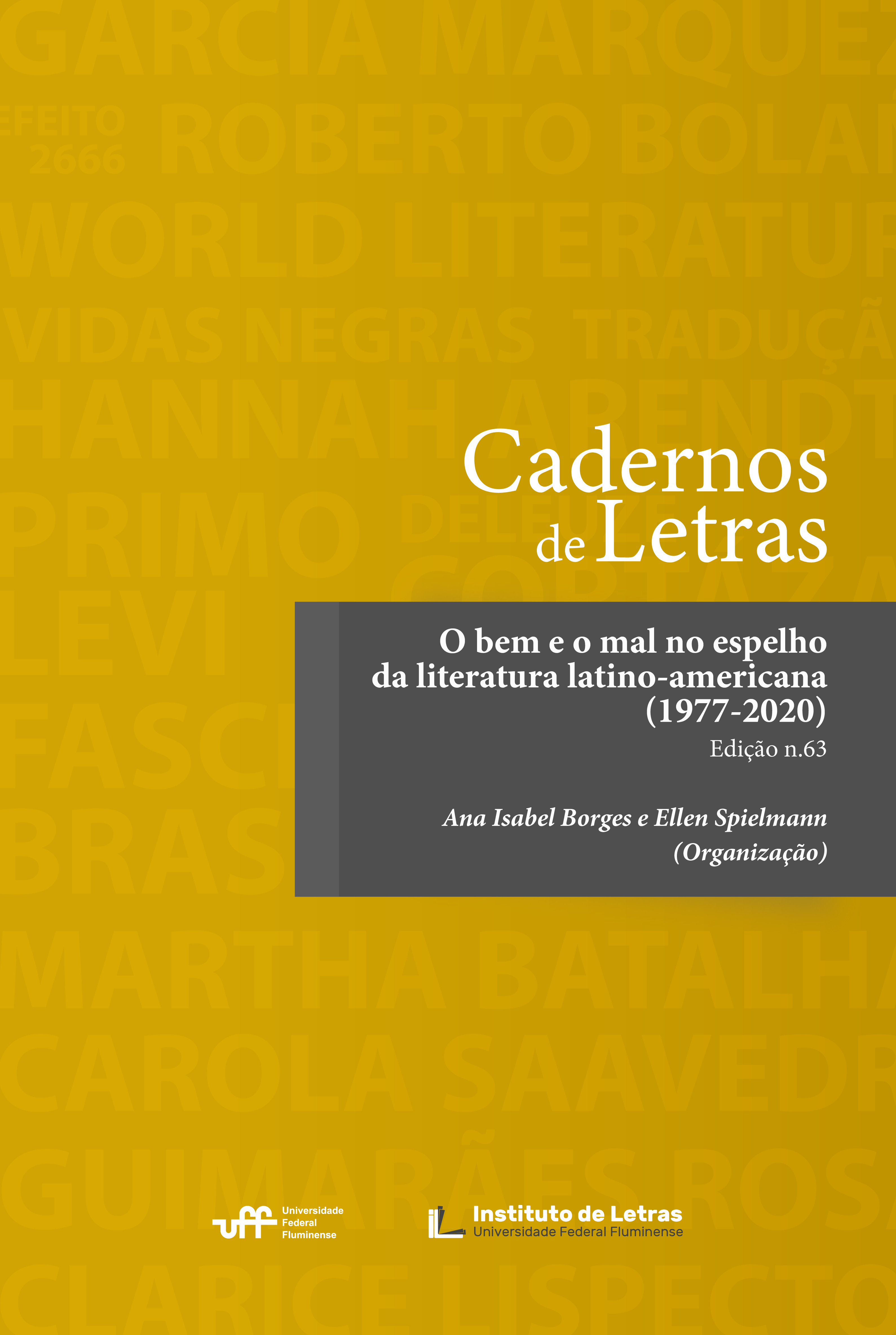A fluidez do bem e do mal: a família tradicional carioca em A vida invisível de Eurídice Gusmão
DOI:
https://doi.org/10.22409/cadletrasuff.v32i63.51140Resumo
Este artigo tem como objetivo analisar o texto literário A Vida Invisível de Eurídice Gusmão, escrito por Martha Batalha em 2016, sob algumas das formações discursivas da classe burguesa que definem o que seriam comportamentos adequados e bons para a atuação da mulher na sociedade. Comportamentos desviantes da norma seriam vistos como reprováveis, suspeitos, e ameaçadores à ordem social e podem ser analisados através das personagens Guida, Maria Rita e Filomena em oposição ao personagem de Eurídice, que tenta frequentemente encaixar-se no padrão. O romance oferece o panorama histórico da década de 40 no Rio de Janeiro; período essencial de transição política e trabalhista na história do Brasil. Para sua análise, foram utilizados outros livros e artigos teóricos como os trabalhos de Foucault, acerca da punição, e de José Luís Fiorin, acerca dos discursos e ideologias, para que se entendesse como o ser humano processa a influência dos discursos hegemônicos e de que forma eles se espelham na vida das pessoas que não pertencem à classe dominante, refletindo seus avessos. Como resultado, é possível perceber as linhas tênues entre o bem e o mal nos valores e comportamentos rejeitados da relação entre o desejo da classe dominante para que se perpetue o modelo econômico vigente, e as diversas estratégias utilizadas para a dominação do sexo feminino, que tem sua culminância nas violências física e psicológica.
Downloads
Downloads
Publicado
Edição
Seção
Licença
Copyright (c) 2024 Cadernos de Letras da UFF

Este trabalho está licenciado sob uma licença Creative Commons Attribution-NonCommercial 4.0 International License.
Autores que publicam em Cadernos de Letras concordam com os seguintes termos:
Os autores mantêm os direitos e cedem à revista o direito à primeira publicação, simultaneamente submetido a uma licença Creative Commons CC-BY-NC 4.0, que permite o compartilhamento por terceiros com a devida menção ao autor e à primeira publicação pela Cadernos de Letras.
Os autores podem entrar em acordos contratuais adicionais e separados para a distribuição não exclusiva da versão publicada da obra (por exemplo, postá-la em um repositório institucional ou publicá-la em um livro), com o reconhecimento de sua publicação inicial na Cadernos de Letras.






